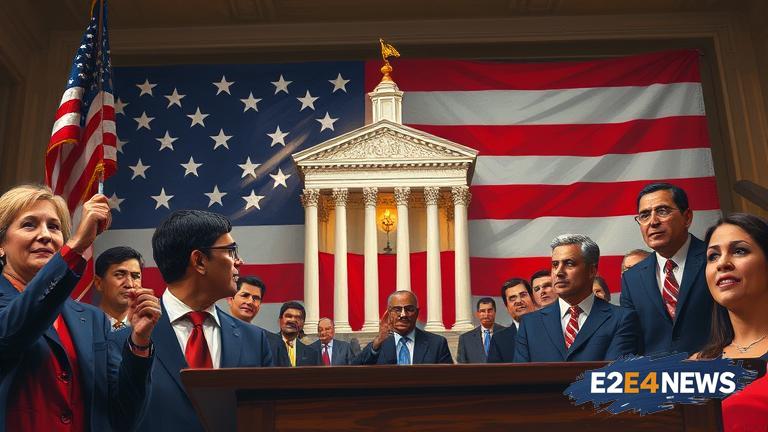The Republican Party is facing a crisis as it struggles to maintain its appeal to Hispanic voters, with many Latino lawmakers sounding the alarm as they watch their party export Latinos en masse. This trend has been evident in recent elections, where the party’s share of the Latino vote has continued to decline. According to a recent survey, the Republican Party’s popularity among Hispanics has plummeted, with many citing the party’s stance on issues such as immigration and healthcare as major turn-offs. Hispanic lawmakers within the party are growing increasingly concerned, as they see their party’s chances of winning over Latino voters slipping away. One lawmaker noted that the party’s failure to address the concerns of Hispanic voters has led to a sense of disillusionment and disenfranchisement among this key demographic. The party’s hardline stance on immigration, in particular, has been cited as a major factor in the decline of Latino support. Many Hispanic voters feel that the party’s policies are not only hostile to their interests but also ignore the complexities of the issue. Furthermore, the party’s lack of diversity and representation has also been cited as a major concern, with many Hispanic voters feeling that their voices are not being heard. The decline of Latino support for the Republican Party has significant implications for the party’s chances in future elections. Without the support of Hispanic voters, the party’s prospects of winning key battleground states are severely diminished. In response to this crisis, some Hispanic lawmakers are calling for the party to re-examine its stance on issues such as immigration and healthcare, and to work towards building a more inclusive and diverse party. However, others argue that the party’s problems run deeper, and that a more fundamental transformation is needed. The party’s leadership has been criticized for its failure to address the concerns of Hispanic voters, and for its lack of engagement with the Latino community. Some have argued that the party’s reliance on divisive rhetoric and policies has alienated many Hispanic voters, and that a more nuanced and inclusive approach is needed. Despite these challenges, there are still many Hispanic lawmakers who remain committed to the Republican Party, and who are working to build a more inclusive and diverse party. These lawmakers argue that the party’s values of limited government, individual freedom, and economic opportunity resonate with many Hispanic voters, and that the party can still win over Latino support if it can find a way to effectively communicate its message. However, others are more pessimistic, and argue that the party’s decline among Hispanic voters is irreversible. The implications of this trend are far-reaching, and could have significant consequences for the future of American politics. As the demographic makeup of the country continues to shift, the importance of winning over Latino voters will only continue to grow. The Republican Party’s failure to adapt to this changing landscape could have severe consequences, and could ultimately lead to the party’s decline as a major force in American politics. In conclusion, the Republican Party’s decline among Hispanic voters is a crisis that requires immediate attention and action. The party must find a way to effectively communicate its message to Latino voters, and to build a more inclusive and diverse party that reflects the values and concerns of this key demographic. If the party fails to do so, it risks losing the support of Hispanic voters for generations to come.





